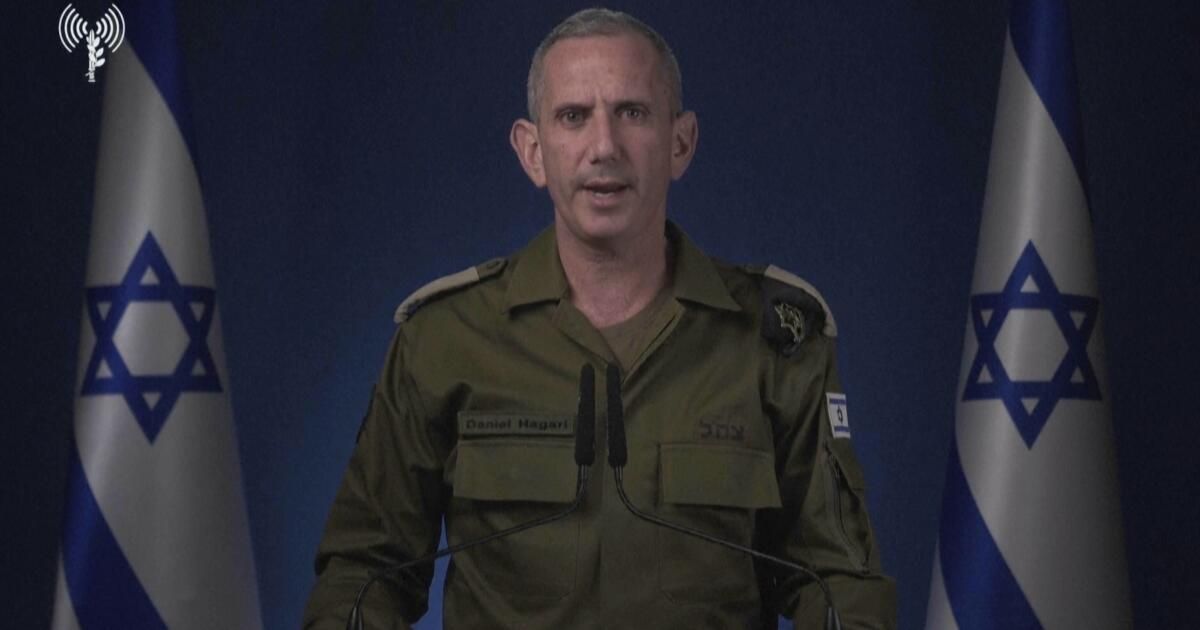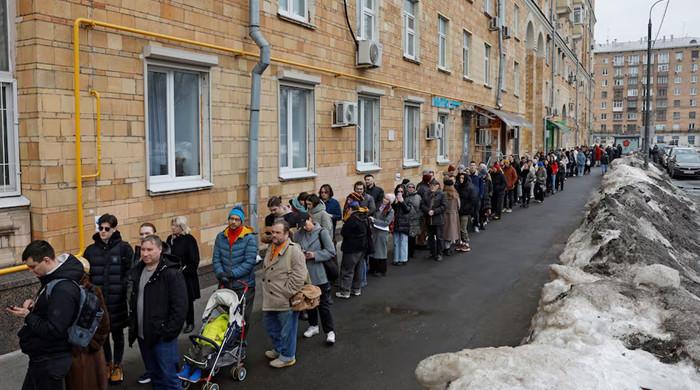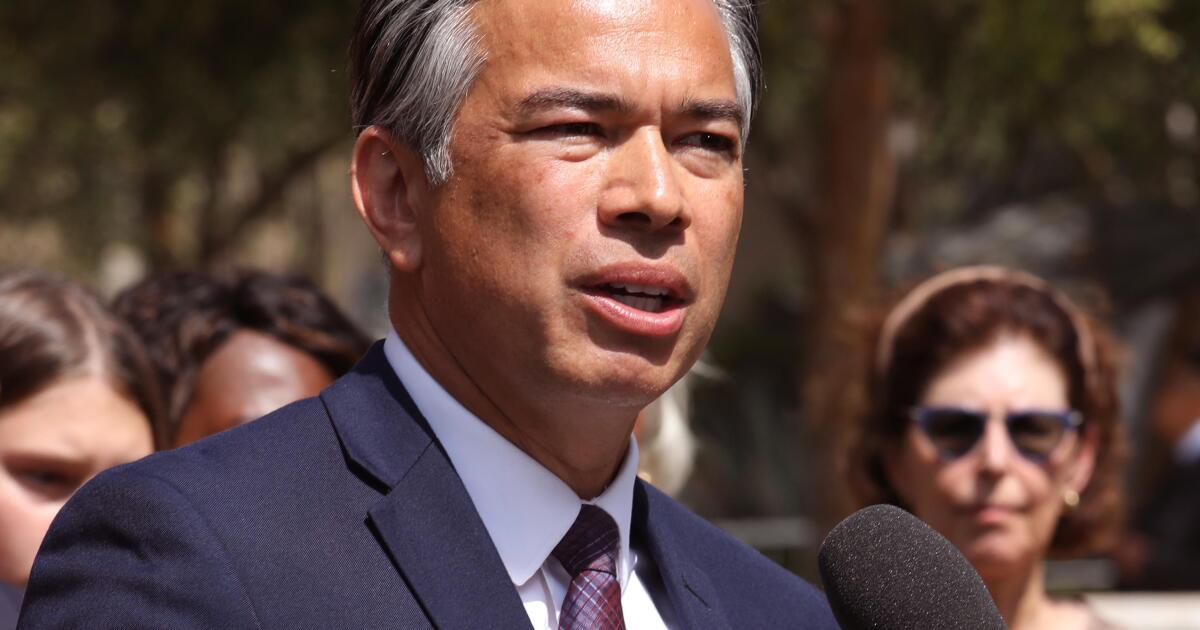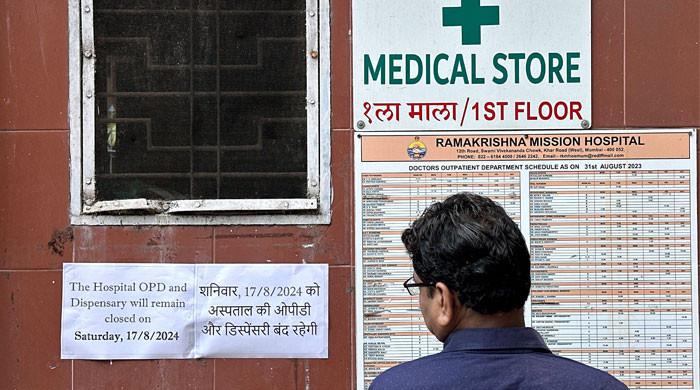The war in the Middle East escalated again early Saturday when Israel bombed targets in Iran in a dizzying pattern of attacks and retaliation that has inflamed the region.
Israel said it was punishing the Islamic Republic for its missile bombardment earlier this month targeting Israeli military facilities and other sites. Those attacks came in response to Israel's assassination of the top leader of the Iran-backed Hezbollah militia and other top commanders in Lebanon.
It was a rare direct confrontation between two of the most heavily armed countries in the Middle East. Instead, enemies have waged a decades-long “shadow war” through proxy militias – such as the Iranian-backed Lebanese group Hezbollah and the Gaza-based Palestinian militant group Hamas – or, in the case of Israel, secret sabotage missions and assassinations.
“In response to months of continued attacks by the Iranian regime against the State of Israel, the Israel Defense Forces are currently carrying out precise strikes against military targets in Iran,” the Israeli military said in a statement. “Like any other sovereign country in the world, the State of Israel has the right and the duty to respond.”
In Tehran, residents reported explosions around the capital and the nearby city of Karaj. Possible targets are missile sites controlled by the Islamic Revolutionary Guard Corps on the western edge of Tehran. Smoke could be seen floating over the night horizon in that direction.
Smoke was also seen from Tehran near the city of Shahriyar, a suspected underground missile storage site.
In Israel, Prime Minister Benjamin Netanyahu retreated to a bunker beneath the Defense Ministry in Tel Aviv, where he was joined by Defense Minister Yoav Gallant and other senior leaders. Netanyahu's office posted a photo of the group gathered around a table.
In an image released by the prime minister's office, Israeli Prime Minister Benjamin Netanyahu, center, meets with Defense Minister Yoav Gallant, center right, and senior commanders in a bunker below Kirya, the defense headquarters in Tel Aviv.
(Avi Ohayon / Israeli Prime Minister's Office)
In the weeks before the attack, Biden administration officials repeatedly urged Israel to avoid attacking Iran's oil industry – lest global markets be damaged – or its nuclear energy facilities.
US officials said Israel notified the White House before the attacks. In a statement late Friday, a National Security Council spokesman said Israel was carrying out “a self-defense exercise and in response to Iran's ballistic missile attack on Israel on October 1.”
The attacks came a day after US Secretary of State Antony J. Blinken left the region, where he completed several days of shuttle diplomacy between Israel, Saudi Arabia and other countries in hopes of restarting high-stakes talks. the fire in the war between Israel and Hamas in the Gaza Strip.

A view of Iran's capital, Tehran, early Saturday.
(Vahid Salemi / Associated Press)
Countries in the region had been preparing for Israel's response to Iran after Netanyahu warned that Tehran would “pay a high price” for attacking Israel.
Until recently, the two countries had largely avoided direct conflict. But in a region inflamed over the past year by brutal fighting between Israel and Hamas in Gaza, Israel and Iran have moved closer to a real war. Tensions have risen further in the past month after tit-for-tat attacks by Israel and Hezbollah on the Israel-Lebanon border escalated dramatically with the Israeli bombing and ground invasion of Lebanon.
A little over a year ago, Hamas invaded southern Israel, killing about 1,200 people and taking about 250 hostages. In response, Israel launched its relentless war against the Gaza Strip. The next day, Hezbollah announced that it would intensify its rocket and missile launches into northern Israel in solidarity with Hamas.
Since then, the Israeli military has killed more than 42,000 Palestinians in Gaza on its southern flank, according to the Health Ministry there. Entire neighborhoods of Gaza have been destroyed, as has much of Hamas, its leaders and its infrastructure. On October 18, Israel announced that it had killed Hamas leader Yahya Sinwar.
By then, Israel had moved major military operations to its northern border with Lebanon. From inside Lebanon over the past 12 months, Hezbollah had been firing thousands of rockets and missiles into Israel, driving some 70,000 Israelis from their cities and killing a small number. Israel's attacks on Lebanon had also displaced tens of thousands, until Israel expanded bombing in late September.
On September 30, Israel launched its first ground invasion of Lebanon in 18 years and said it was attacking Hezbollah targets. But their bombing spread across Lebanon, as far as the Bekaa Valley and even Tripoli in the north, while they repeatedly attacked the capital, Beirut. According to the Lebanese Ministry of Health, more than 2,000 Lebanese have died and one million have been displaced.
Hezbollah is Iran's most important representative in the Middle East. Israel's September 27 assassination of former Hezbollah leader Hassan Nasrallah triggered Iran's retaliation four days later: a barrage of nearly 200 ballistic missiles that forced millions of Israelis to take shelter in bomb shelters. With the support of the American and British air forces, Israel was able to intercept most of the projectiles. Still, it was only the second time Iran had directly attacked Israel, the first in April; On both occasions, the damage in Israel was minimal.
Israel promised retaliation and the region had been preparing for it ever since.
U.S.-led efforts to mediate a ceasefire in Gaza – aimed at freeing the remaining hostages held in Gaza, stopping Israeli bombardment and making possible the delivery of desperately needed food and medicine – have so far failed.
Times staff writer Wilkinson reported from Washington, special correspondent Mostaghim from Tehran. Staff writer Laura King in Washington contributed to this report.












